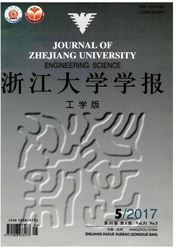

 中文摘要:
中文摘要:
研究了不同功率的超声波对管内不同动力黏度和流速的水煤浆流动阻力的影响,考察了不同频率的超声波对水煤浆粒度、动力黏度和稳定性的变化规律.当超声波功率密度为0.49W/cm^2、水煤浆动力黏度为245mPa·s、流速为0.27m/s时,水煤浆管内流阻降低了49.4%.随着超声波功率密度增大,水煤浆流阻先明显降低后逐渐升高.随着水煤浆动力黏度增大和流速增大,超声波降低流阻的效果减弱.从改善制浆性能和降低能耗考虑,超声波频率10kHz和作用时间1min是强化制浆的较佳选择,能使常规和精细水煤浆的平均粒度降低,并且使流变性都呈现出屈服假塑性,在储存输送时低剪切速率下的稳定性和在喷嘴射流时高剪切速率下的雾化效果都得到了改善.
 英文摘要:
英文摘要:
The impacts of ultrasonic irradiation with different powers on flow resistance of coal water slurry (CWS) with different viscosities and velocities were investigated. The effects of ultrasonic irradiation with different frequencies on the particle size, viscosity and stability of CWS were also studied. When the ultrasonic power density was 0.49 W/cm^2 , the CWS viscosity was 245 mPa · s and the flow velocity was 0.27 m/s, the flow resistance was dramatically reduced by 49.4%. The CWS flow resistance firstly decreased to an optimal valley and then contrarily increased with increasing ultrasonic power density. The reduction effect in CWS flow resistance caused by ultrasonic irradiation was weakened with increasing CWS viscosity and flow velocity. Considering the CWS property improvement and low energy comsumption, the ultrasonic frequency of 10 kHz and irradiation time of 1 min were optimal conditions in CWS preparation. The average granularities of the conventional and ultrafine CWS both decrease with ultrasonic irradiation, while both CWS present the pseudoplastic characteristics. The ultrasonic irradiation resulted in an evident increase in CWS viscosity at low shear rate (11.7/s) and a slight decrease in CWS viscosity at high shear rate (110/s). The results imply that the CWS stability in storage and transportation was improved, as well as the CWS atomization in high-speed spraying through nozzles.
 同期刊论文项目
同期刊论文项目
 同项目期刊论文
同项目期刊论文
 期刊信息
期刊信息
